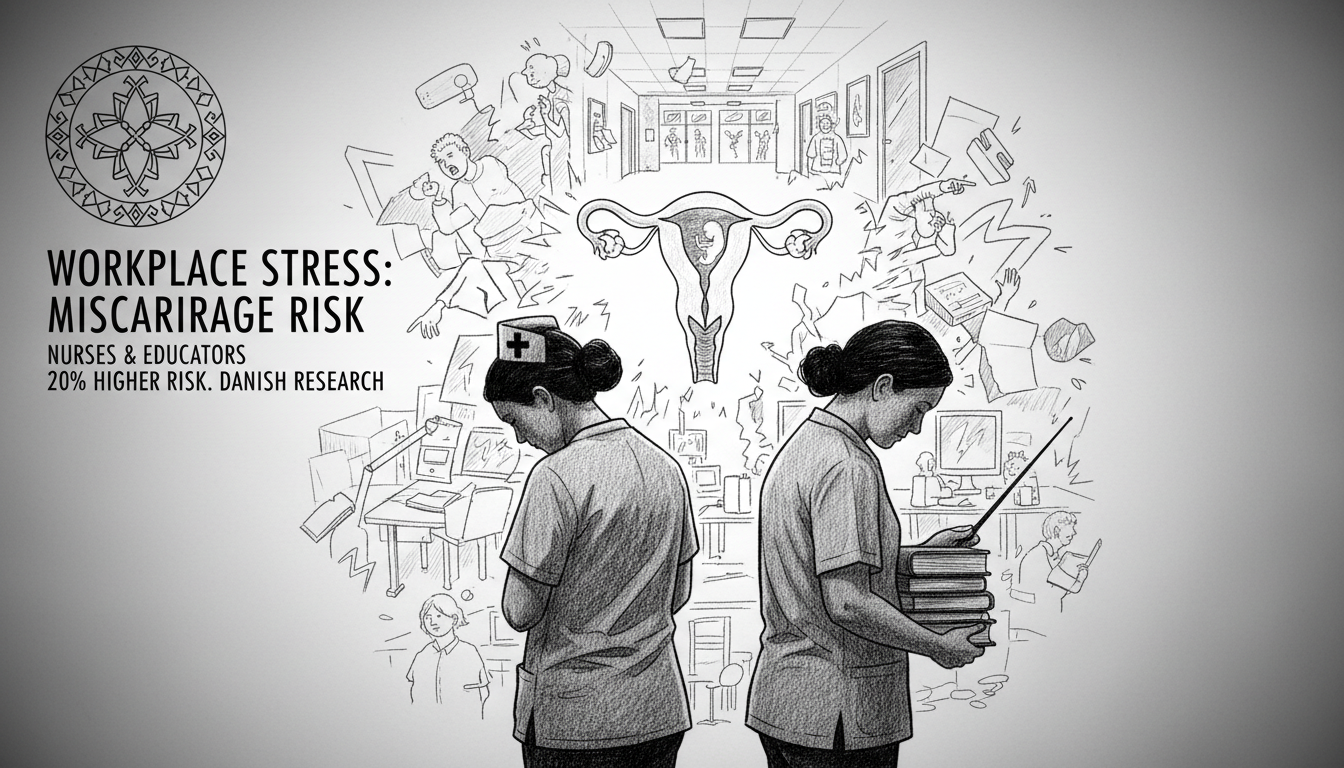A major Danish study reveals that pregnant women in high-stress professions face increased miscarriage risks. Nurses, teachers, and childcare workers show 1.2 times higher likelihood of spontaneous abortion when exposed to workplace violence or emotional demands.
The research from Bispebjerg Hospital's Department of Occupational and Environmental Medicine analyzed data from one million pregnancies spanning four decades. This represents the first comprehensive investigation linking psychosocial work environments directly to pregnancy outcomes in these professions.
Senior researcher Karin Sørig Hougaard emphasized the broader implications. While individual risk increases appear modest, the collective impact matters significantly because so many women work in these essential fields. She noted the findings highlight the societal importance of protecting pregnant workers' mental wellbeing.
Professions involving patient care, education, and social work consistently expose workers to emotional strain and potential physical confrontation. These roles demand constant interpersonal engagement that can create sustained stress levels.
Previous research has connected workplace stress with pregnancy complications including premature birth. The new study provides concrete evidence about miscarriage risks specifically. It shifts focus beyond physical workplace hazards to psychological factors affecting maternal health.
Camilla Sandal Sejbæk, another senior researcher involved in the project, explained the study's significance. Most existing guidelines focus on physical workplace safety for pregnant women. Our findings demonstrate we must also address psychosocial work environments with equal seriousness, she stated.
The Scandinavian context makes these findings particularly relevant. Nordic countries pride themselves on progressive workplace policies and gender equality. Yet this research suggests even these advanced labor markets may overlook specific risks facing pregnant workers in care professions.
International readers should note these findings have implications beyond Denmark. Healthcare and education sectors worldwide share similar workplace dynamics. The study suggests global need for better protection of pregnant workers in high-stress roles.
What practical changes might follow? Workplaces could implement earlier risk assessments for pregnant employees. They might adjust duties during pregnancy or provide additional support resources. The research could influence occupational health guidelines across multiple countries.
The study's scale lends considerable weight to its conclusions. With data covering over forty years and a million pregnancies, it represents one of the most comprehensive investigations into this specific workplace health issue.
For expatriates and international professionals in Nordic countries, these findings highlight important considerations about workplace safety systems. While Scandinavian countries generally offer strong worker protections, this research identifies a gap in current safety approaches.
The timing coincides with ongoing labor negotiations in several Nordic countries where healthcare and education workers demand better conditions. These findings could strengthen their positions regarding workplace safety improvements.
Looking forward, researchers recommend employers in these sectors conduct proactive risk assessments. They suggest implementing protective measures for pregnant workers before problems emerge. The goal should be preventing stress-related pregnancy complications rather than reacting after they occur.
